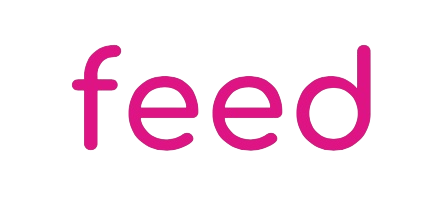
Helping families who need infant formula: guidance for food and baby banks in England,Wales & Northern Ireland
As Local Authorities and Health Boards work towards the development of an emergency infant formula provision pathway, in line with UNICEF UK guidance, these Feed guidelines provide an interim measure to support food banks, baby banks and other third sector charitable food organisations to help families who request infant formula.
Can food and baby banks provide infant formula?
Yes, food and baby banks can accept and provide formula to families in need
The national and international laws governing infant feeding recognise, and include allowances for, the acceptance and provision of infant formula to formula fed babies.
Consider a cash first approach
In line with best practice, third sector organisations should aim for a ‘cash-first’ approach. This means signposting people to any available crisis support provided in cash payments by local authorities, as well as ensuring parents and carers can access local advice and support to maximise income. To provide immediate help, you can offer money without receipt or grocery vouchers for participating stores to help families buy infant formula. When cash first options are not available, then first infant formula can be directly provided.
Who is eligible for infant formula?
Babies up to one year of age
Babies who receive all or part of their nutrition from infant formula must have that need met up until the age of 1, when they can transition to full fat cows milk.
What formula type can we accept?
First infant milk is suitable for babies up to one year
First infant milk, or stage 1 infant formula, usually has a large number 1 on the box or tin. It is suitable for babies up to one year of age.
What infant formula brand is best?
All brands meet the same nutritional standards
All infant formula is subject to strict legal guidelines regarding the composition and manufacture. Therefore, all brands must meet the same nutritional guidelines. The least expensive brand available is nutritionally equivalent to the most expensive brand.
Can babies switch to a different formula?
Switching to a different formula brand is not harmful
While some babies may show a preference for a specific brand of first infant formula, switching to a different brand is not harmful as all first infant milks have very similar composition. If a parent or carer has concerns they can speak to their health care provider.
What if a baby needs a specialist formula?
Refer the family to their health care practitioner
Some specialist formula are available on prescription while others can be purchased over the counter. If a family feels their baby needs such formula they should speak with their Midwife, Health Visitor or GP. You can offer a cash payment or grocery voucher to the family in an emergency.
How do you prepare infant formula?
By following best practice guidelines from the NHS
The NHS Start 4 Life Guide to Bottle Feeding contains information on how to prepare and store infant formula milk, as well as handy tips on feeding, including responsive feeding. Keep these leaflets to hand to give to parents and carers of formula feeding babies.
What if fuel poverty is a concern?
Supply cold water sterilising tablets or ready to use formula
Offering washing up liquid and cold water sterilising tablets allows families to safely clean and sterilise feeding equipment without using fuel to boil water or run the microwave. Equally, ready to use formula does not require boiling water for preparation. Larger bottles of ready to feed formula require refrigeration after opening; if this is not possible then smaller, single use bottles can be provided.
How can we support breastfeeding?
By supporting the breastfeeding Mum
Breastfeeding women living in food poverty are more likely to stop or reduce breastfeeding compared to food secure women, so should be referred to their Health Visitor for tailored feeding support. Additional foodstuffs should also be provided to breastfeeding Mums to meet the additional calorie requirements of optimal milk production.
How can we support families living with HIV?
Contact your local HIV support service
It is recommended that parents living with HIV exclusively formula feed their infant, but some can struggle to afford infant formula. Contact your local HIV support service to see if they would be interested in receiving donations of first infant formula to distribute to their clients.
How can we further support families in need?
By signposting them to additional support services
Tell families about the Healthy Start scheme as they may be eligible for further financial support to help with the families food costs. Signpost to local agencies who can help with income maximisation and access to benefits. Provide the Independent Food Aid Network (IFAN) ‘Worrying About Money’ leaflets; a great resource to help families to maximise income. You can also signpost families to their local infant feeding team for further infant feeding support.
All Local Authorities should have an emergency formula provision pathway
All local areas in the UK should have a pathway for the provision of infant formula milk to a formula fed infant in a crisis situation. Your service might be incorporated into or sit outside of this pathway. Best practice is to be aware of these provisions and work together with your Local Authority to support families in need.
Consider collecting data to evidence where resources need to be directed
In order to appropriately direct financial help, it is important to collect some data on the number and type of referrals. Feed offers a template to make data collection easier. Local authorities that have established pathways will also be collecting data and working collaboratively will ensure you can reflect the needs of your local community best.
RESOURCES
Healthy Start Scheme. UK Government.
Worrying About Money? Cash First Guidance. Independent Food Aid Network.
A guide for Local Authorities and Health Boards supporting families with infants under 12 months experiencing food insecurity (2022). UNICEF UK.
Benefits for Children and Families. UK Government.
Guide to Bottle Feeding. NHS Start 4 Life and UNICEF UK.
Breastfeeding Information and Support. NHS Start 4 Life.
Information on Types of Formula for Parents and Carers. NHS.
These guidelines were written by Feed in accordance with the laws governing infant formula, the frameworks described by the Royal College of Midwives and the Royal College of Paediatrics and Child Health, British HIV Association and National Aids Trust recommendations, and as a response to the APPGIFI inquiry into infant formula costs which highlighted the issues facing formula feeding families living in the UK. They are informed by our own research into pathways of access to infant formula, and the outcome of our public inquiry into families and professionals lived experience of seeking emergency formula provision.
These guidelines are endorsed by the British Pregnancy Advisory Service, the Independent Food Aid Network (IFAN), the National Aids Trust, AberNecessities, Glasgow North Baby Food Bank and Moray Baby Bank.







